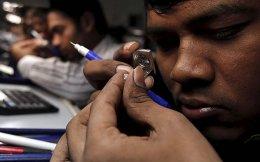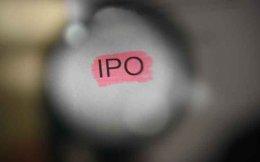After a jury convicted Raj Rajaratnam of insider trading, his lawyer said he'll be heading to an appeals court. But the legal path for the Galleon Group hedge fund founder may not get any easier.
Rajaratnam faces steep odds in getting his conviction on 14 criminal counts overturned, according to defense lawyers and former prosecutors not involved in the case."
The Galleon Group founder, a one-time billionaire, has the resources to mount a vigorous challenge to his convictions. Finding a compelling issue for an appeal could be challenging, however.
Rajaratnam's best shot at getting the verdict thrown out may be attacking the admissibility of the secretly recorded phone calls that formed the backbone of the government's case.
"Because judges are really, really rigorous about holding prosecutors to the rules, it is virtually impossible for a defendant to suppress evidence from a federal wiretap," Robert Weisberg, a professor at Stanford Law School, said on Wednesday.
"I would give the defendant very, very little chance on winning a reversal."
Rajaratnam, free on bail until his July sentencing, is not giving up. His chief lawyer, John Dowd, said in a brief statement outside the courthouse after the verdict that "We'll see you in the 2nd Circuit," referring to the federal appeals court in New York.
USE OF WIRETAPS
Over nearly seven weeks of trial, the government played dozens of recordings of Rajaratnam speaking with corporate insiders and hedge fund colleagues. Prosecutors argued that the recordings showed that he violated insider trading laws.
The use of wiretaps in the investigation was considered a watershed event. When Manhattan U.S. Attorney Preet Bharara announced the charges against Rajaratnam in October 2009, he said it was the first time wiretaps had been used to target major insider trading on Wall Street.
So far, the tactic has withstood judicial scrutiny, even though Rajaratnam's lawyers argued that the government had not been completely truthful about the need for the telephone surveillance in an application to a federal judge.
U.S. District Judge Richard Holwell held a four-day hearing in October on Rajaratnam's motion to suppress the wiretaps. In an opinion issued in November, the judge criticized an FBI agent and a prosecutor for not including information about a parallel SEC probe in a wiretap application, but he concluded that the omissions did not warrant suppressing the evidence.
Rajaratnam's lawyers were not able to appeal that order before the trial. Now that Rajaratnam has been convicted, they can try to renew their arguments before the appeals court.
The defense will have to show that Holwell erred in allowing the government to use the recordings at trial and that the error was not a harmless one.
Given the outsized role that the tapes played at trial, if they were found inadmissible, "it would not be a harmless error," said Marc Greenwald, a former federal prosecutor who is now an attorney at Quinn Emanuel Urquhart & Sullivan LLP.
No appellate courts have ruled on whether wiretaps can be issued for insider trading, making it an attractive issue for the 2nd Circuit, said Gail Shifman, a criminal defense attorney with Shifman Group in San Francisco.
In allowing the wiretaps, Holwell also rejected another argument by the defense: that securities fraud is not one of the offenses Congress included in the federal law permitting the government to request court authorization of wiretaps.
Holwell reasoned that the government was also investigating wire fraud, which is one of the offenses included in the wiretap law, known as Title III.
The 2nd Circuit is unlikely to accept Rajaratnam's argument that the tapes should be inadmissible because Congress did not authorize the government to seek wiretaps for insider trading, said G. Robert Blakey, a professor at the University of Notre Dame Law School who helped draft Title III.
There often is overlap in criminal offenses such as insider trading and wire fraud, Blakey said.
Recently, some other well-known white-collar defendants have successfully challenged part of their convictions.
Former Hollinger International CEO Conrad Black saw his convictions reduced after the U.S. Supreme Court ruled that the federal "honest services" fraud statute used to prosecute him was too broad.
In a related ruling, the Supreme Court found that the honest services charges against former Enron Corp CEO Jeffrey Skilling were flawed, although it has not resulted in a reduction of his conviction.
In Rajaratnam's case, the conduct of the jury could come under scrutiny as his lawyers consider appeal options.
But the dismissal of one juror for medical reasons after six days of deliberations is unlikely to present strong grounds for appeal, said Roland Riopelle of the law firm Sercarz & Riopelle LLP. That juror was replaced with an alternate.
"The rules as they apply to a district court's decision to get rid of a juror and seat a new one are very much discretionary," said Riopelle. "There has to be very clear abuse of discretion for the circuit to reverse a district court's decision."
The case is USA v. Raj Rajaratnam et al, U.S. District Court for the Southern District of New York, No. 09-01184.






